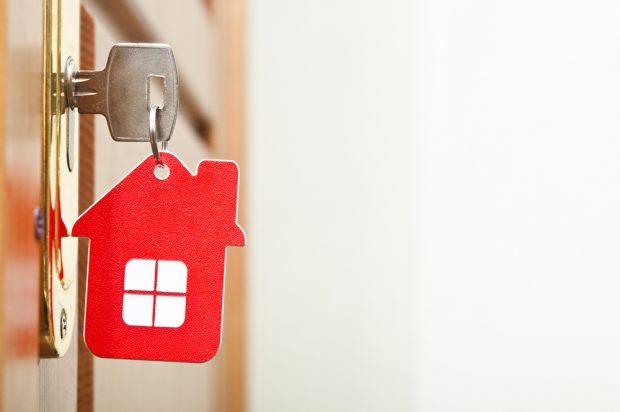 Source: Shutterstock.
Source: Shutterstock.
This year's plunge in mortgage rates is giving Americans an incentive to upgrade to pricier houses.
Take loan officer Clint Gerke's client in Salem, Oregon. The single mother is just fine with her current home. But she's selling anyway so she can look for something better. Her motivation? Gerke offered her a 30-year mortgage with a rate of less than 4%.
Recommended For You
"She wants to upgrade now before the interest rates go up and prices get even higher," he said.
One result of falling borrowing costs is that buyers are able to afford bigger mortgages. Those seeking pricier properties are acting now because their choices are increasing, and profits from selling their current home can fund the down payment on the next one. But at the entry level, where supplies are scarce, low rates mean even heavier competition.
The average rate for a 30-year mortgage dropped for a fifth straight week to 3.99%, the lowest since January 2018, Freddie Mac said Thursday.
Data from the Mortgage Bankers Association, meanwhile, show the average loan size increased to $331,000 last week, up 4% from a year earlier, and climbed as much as 9% during one week in April. Last November, when the 30-year rate was almost a percentage point higher, mortgage sizes were in decline.
Falling rates help loosen up a tight market. When rates rise, homeowners are more likely to stay put because they don't want to take on bigger mortgages. But when loan costs fall, they get motivated to trade up. And that frees up entry-level homes for eager first-timers.
"There's a little more inventory on the market, and that's freeing up the logjam a little," said Michael Fratantoni, chief economist of the bankers group. "But the entry level is still extraordinarily tight."
Sales are strengthening in move-up price ranges. While deals fell 3% in April from a year earlier for homes costing less than $250,000, they were up 7% for other price segments up to $1 million, said Lawrence Yun, chief economist of the National Association of Realtors.
Buyers of higher-priced homes are just more "interest-rate sensitive," said Leonard Kiefer, deputy chief economist at Freddie Mac.
"Interest rates will move those people off the margin," he said. "But there are so many excess buyers in the entry level that it doesn't affect sales as much" for low-end properties.
Gerke, the loan officer with Salem-based Landmark Professional Mortgage, said his client wants to buy a house for about $350,000, which is considered move-up territory in her area.
"I'm seeing a lot of people who before were content to stay put and now are saying, 'It's not a bad time to upgrade,"' Gerke said.
© 2025 ALM Global, LLC, All Rights Reserved. Request academic re-use from www.copyright.com. All other uses, submit a request to [email protected]. For more information visit Asset & Logo Licensing.






